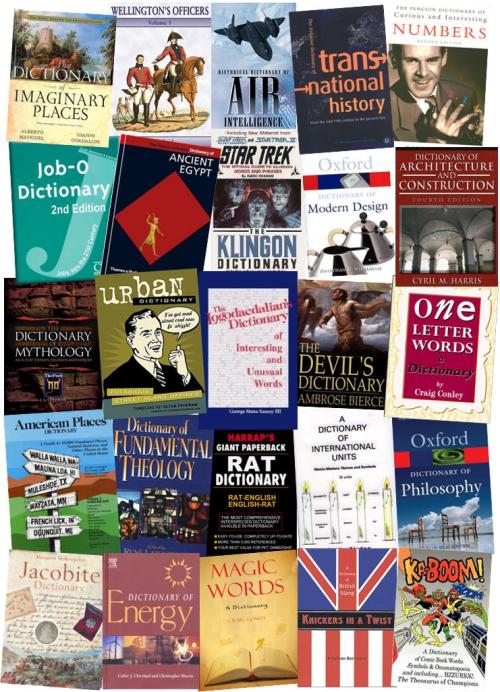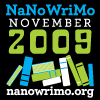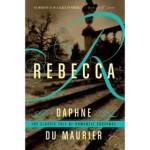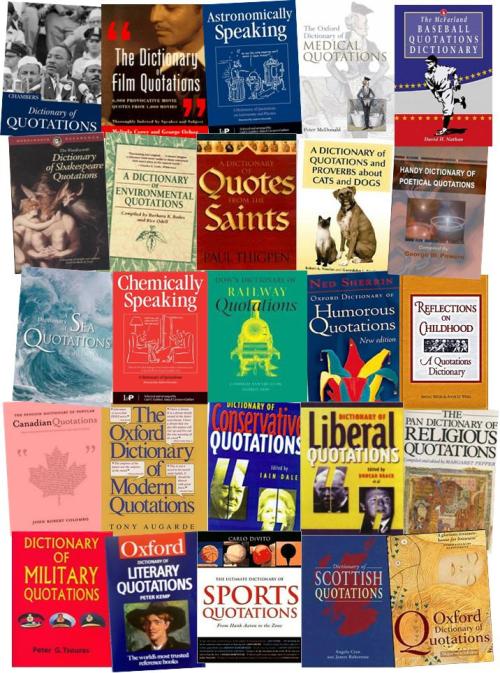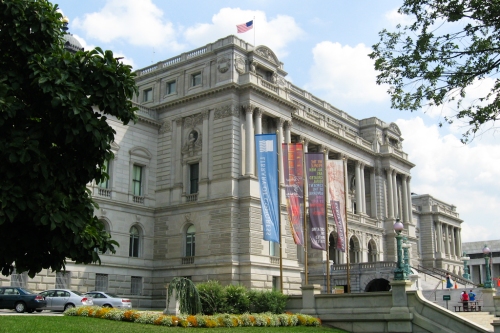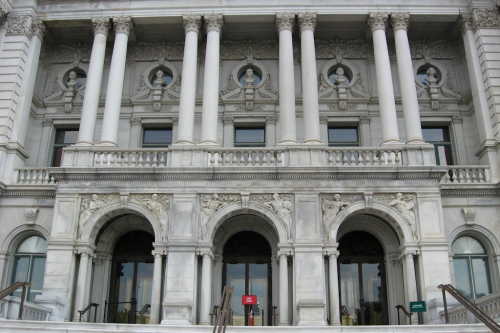Part One
When visiting one of the University of Toronto’s libraries, I discovered a massive dictionary just inside the entrance. I have never seen anything like it. It was huge! All those words, all that knowledge! I gazed in awe at the magnificent tome, displayed reverently on its own pedestal with a light shining down on it from the heavens. There may have been a choir singing… well, that’s how I remember it anyway.
Everyone should have a standard dictionary, or more likely these days, a bookmark for an on-line version, but a quick Google search shows that there are also specialized books with terms specific to just about every profession, hobby or interest imaginable. Following is just a small sampling of dictionaries available for those interested in expanding their English vocabulary.
The Logodaedalian’s Dictionary of Interesting and Unusual Words, by George Stone Saussy. I had to look up the word logodaedalian in a conventional dictionary to discover that it refers to someone who is clever at playing with words. This book, according to the publisher, lists the meanings of difficult and obscure English words, and offers examples of their use from the works of top British and American writers.
One-Letter Words, a Dictionary, by Craig Conley. My first thought was that this must be a very short book, however, according to the description it “illuminates the more than 800 surprising definitions associated with the letters in the English alphabet. For instance, Conley uncovers 69 different definitions for the letter X, the most versatile and printed letter in the English language.”
Knickers in a Twist: a Dictionary of British Slang, by Jonathan Bernstein. After reading this, “at least you’ll be aware that when a British citizen describes you as a ‘wally,’ a ‘herbert,’ a ‘spanner,’ or a ‘bampot,’ he’s not showering you with compliments.”
Magic Words: A Dictionary, by Craig Conley. According to reviews, “The first 48-pages are utterly fascinating, with Conley an engaging tour guide through literary, philosophical, cultural and spiritual landscapes,” and in the following pages, “magic words taken from literature, plays, movies; all the way from Ovid to Shakespeare to Ronald Hutton to J.K. Rowling.”
KA-BOOM! A Dictionary of Comic Book Words, Symbols & Onomatopoeia, by Kevin J. Taylor. “Shouldn’t all dictionaries start with AAAA and end with ZZZZZZZTZZZTZZZ? KA-BOOM! does.”
If you’ve been thinking of learning another language, I found three dictionaries of interest.
The Elvish Dictionary, by Ambar Eldaron. J.R.R. Tolkien, an Oxford academic who was an expert in ancient languages, spent a great deal of time creating his own. He developed two forms of Elvish, which were integral to the creation of the Lord of the Rings trilogy. Sindarin is based on the sounds of Welsh, and Quenya is related to Finnish. You can buy dictionaries for both. Certainly as spoken in the Lord of the Rings movies, Elvish is a beautiful language. Ni ve sa (I like it.)
The Klingon Dictionary (Star Trek), by Marc Okrand. This book includes a precise pronunciation guide, proper use of affixes and suffixes, conjunctions, exclamations and superlatives, and simple and complex sentence structure, i.e. everything you want in a dictionary. It also contains the Klingon translation and pronunciation of representative phrases such as “activate the transport beam”, and “surrender or die!” Surely a necessity for every home.
Harrap’s Rat Dictionary. No, it’s not about rats; it’s how to speak rat. It includes Rat-English and English-Rat, with over 5,000 references, 80,000 translations and hundreds of new expressions. Here’s a sample entry from the E page: eee [‘ii:i] v. tr. to want; eee ee awp, I want that pea. The book comes with a CD-Rom pronunciation guide with over 80,000 words spoken by…wait a second…trained rat professionals? The book has 1523 pages? Oops, sorry, it’s a hoax. You’ll have to keep waiting for the real thing.
